 M.S. student Lindsay Agvent received The Nature Conservancy’s Global Marine Initiative URI student research program grant, which supports her use of stable isotope analysis to track the movement ecology of Jonah crab across management zones in southern New England. In partnership with R.I.’s Dept. of Environmental Management and local fishermen, her work is providing scientific support to manage this burgeoning fishery more sustainably in the state.
M.S. student Lindsay Agvent received The Nature Conservancy’s Global Marine Initiative URI student research program grant, which supports her use of stable isotope analysis to track the movement ecology of Jonah crab across management zones in southern New England. In partnership with R.I.’s Dept. of Environmental Management and local fishermen, her work is providing scientific support to manage this burgeoning fishery more sustainably in the state.
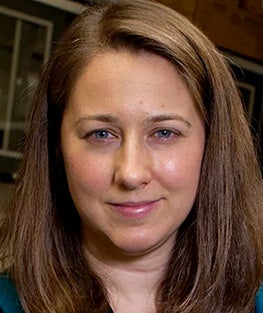 The National Science Foundation (NSF) awarded Associate Professor Roxanne Beinart with a nearly $1.3 million CAREER grant to continue her research on deep-sea animals and their bacterial symbionts.
The National Science Foundation (NSF) awarded Associate Professor Roxanne Beinart with a nearly $1.3 million CAREER grant to continue her research on deep-sea animals and their bacterial symbionts.
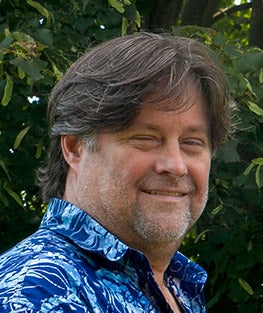 The American Association for the Advancement of Science (AAAS) elected Professor of Oceanography Steven D’Hondt to the rank of AAAS Fellow. The organization recognizes those whose work on behalf of “the advancement of science, or its applications, are scientifically or socially distinguished.”
The American Association for the Advancement of Science (AAAS) elected Professor of Oceanography Steven D’Hondt to the rank of AAAS Fellow. The organization recognizes those whose work on behalf of “the advancement of science, or its applications, are scientifically or socially distinguished.”
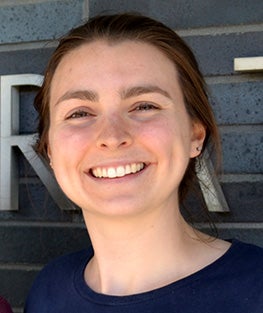 Ph.D. candidate Diana Fontaine received the Phi Kapa Phi Love of Learning Award, which is designed to help fund post-baccalaureate professional development for active Phi Kappa Phi members. These funds support Fontaine’s research on the primary production and community composition of phytoplankton on the Northeast U.S. Shelf.
Ph.D. candidate Diana Fontaine received the Phi Kapa Phi Love of Learning Award, which is designed to help fund post-baccalaureate professional development for active Phi Kappa Phi members. These funds support Fontaine’s research on the primary production and community composition of phytoplankton on the Northeast U.S. Shelf.
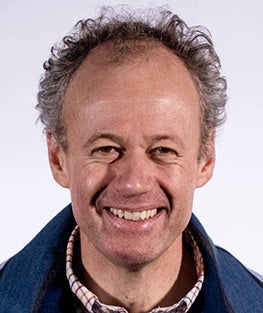 Ph.D. candidates Diana Fontaine, Katherine Roche and Samantha Setta, as well as Professor Rainer Lohmann (pictured), were inducted into the Honor Society of Phi Kappa Phi, the nation’s oldest and most selective all-discipline honor society. The Society’s mission is to recognize and promote academic excellence in all fields of higher education and to engage the community of scholars in service to others.
Ph.D. candidates Diana Fontaine, Katherine Roche and Samantha Setta, as well as Professor Rainer Lohmann (pictured), were inducted into the Honor Society of Phi Kappa Phi, the nation’s oldest and most selective all-discipline honor society. The Society’s mission is to recognize and promote academic excellence in all fields of higher education and to engage the community of scholars in service to others.
 Ph.D. candidate Asta Habtemichael received URI’s Cunnigen Award, presented to a graduate student in recognition of outstanding academic performance, active scholarly research, leadership and service. The award is part of the Black Scholar Awards Program, established by Black Faculty to acknowledge the scholarship and diverse achievements and contributions of the students of African diaspora in the areas of community service, leadership, arts, science, research and athletics.
Ph.D. candidate Asta Habtemichael received URI’s Cunnigen Award, presented to a graduate student in recognition of outstanding academic performance, active scholarly research, leadership and service. The award is part of the Black Scholar Awards Program, established by Black Faculty to acknowledge the scholarship and diverse achievements and contributions of the students of African diaspora in the areas of community service, leadership, arts, science, research and athletics.
 Assistant Professor Keisuke Inomura was one of four in the nation to receive a 2023 Simons Early Career Investigator in Aquatic Microbial Ecology and Evolution Award. The purpose of this annual award is to help launch the careers of outstanding investigators in the fields of microbial ecology and evolution in marine or natural freshwater systems, who will advance our understanding through experiments, modeling or theory.
Assistant Professor Keisuke Inomura was one of four in the nation to receive a 2023 Simons Early Career Investigator in Aquatic Microbial Ecology and Evolution Award. The purpose of this annual award is to help launch the careers of outstanding investigators in the fields of microbial ecology and evolution in marine or natural freshwater systems, who will advance our understanding through experiments, modeling or theory.
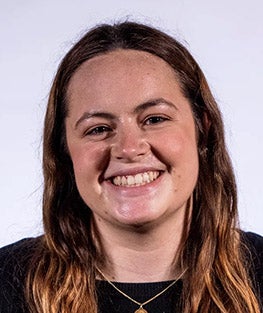 Annabelle Leahy, M.M.A ’23, M.S. ’23, who earned her degrees in May, has traveled to the European Union through the Fulbright Schuman Program to study E.U. affairs and policy at the Royal Belgian Institute of Natural Sciences. She is analyzing the implementation of offshore wind initiatives, marine spatial planning tools, and other European environmental policies to understand how the U.S. might develop the industry in a way that contributes to emissions reductions, coexists with other marine industries, and minimizes harm to ecosystems in coastal communities.
Annabelle Leahy, M.M.A ’23, M.S. ’23, who earned her degrees in May, has traveled to the European Union through the Fulbright Schuman Program to study E.U. affairs and policy at the Royal Belgian Institute of Natural Sciences. She is analyzing the implementation of offshore wind initiatives, marine spatial planning tools, and other European environmental policies to understand how the U.S. might develop the industry in a way that contributes to emissions reductions, coexists with other marine industries, and minimizes harm to ecosystems in coastal communities.
 Ph.D. student Bryan Plankenhorn, a first-generation Indigenous graduate student from the Port Gamble S’Klallam Tribe in Washington, was awarded a fellowship through the NSF Graduate Research Fellowships Program. His research focuses on harmful algal blooms, which produce dangerous neurotoxins impacting sea life.
Ph.D. student Bryan Plankenhorn, a first-generation Indigenous graduate student from the Port Gamble S’Klallam Tribe in Washington, was awarded a fellowship through the NSF Graduate Research Fellowships Program. His research focuses on harmful algal blooms, which produce dangerous neurotoxins impacting sea life.
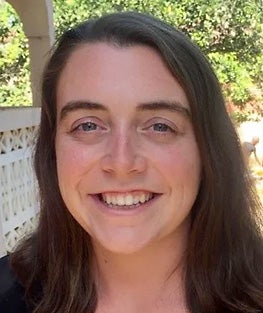 Ph. D. candidate Katherine Roche received a NASA R.I. Space Grant which is supporting her research of diatoms’ physiological responses to nutrient limitation in the North Atlantic and carbon export pathways. Roche’s work is part of a NASA-led field campaign and multi-institutional collaboration, Export Processes in the Ocean from Remote Sensing (EXPORTS), which aims to better understand carbon export from the upper ocean.
Ph. D. candidate Katherine Roche received a NASA R.I. Space Grant which is supporting her research of diatoms’ physiological responses to nutrient limitation in the North Atlantic and carbon export pathways. Roche’s work is part of a NASA-led field campaign and multi-institutional collaboration, Export Processes in the Ocean from Remote Sensing (EXPORTS), which aims to better understand carbon export from the upper ocean.
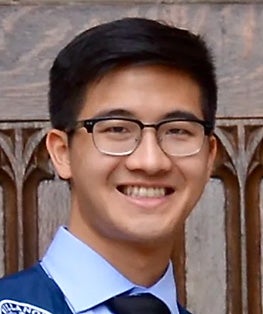 Ph.D. student Philip Yang was named a 2023 Dr. Nancy Foster Scholar by NOAA’s Office of National Marine Sanctuaries. The scholarship program provides support for students working toward master’s and doctoral degrees in oceanography, marine biology and maritime archaeology. Yang’s research is focused on generating a spatial and temporal understanding of how the marine environment drives mesophotic coral and coralline macroalgae distribution in the Flower Garden Banks National Marine Sanctuary.
Ph.D. student Philip Yang was named a 2023 Dr. Nancy Foster Scholar by NOAA’s Office of National Marine Sanctuaries. The scholarship program provides support for students working toward master’s and doctoral degrees in oceanography, marine biology and maritime archaeology. Yang’s research is focused on generating a spatial and temporal understanding of how the marine environment drives mesophotic coral and coralline macroalgae distribution in the Flower Garden Banks National Marine Sanctuary.
 Professor Emeritus James A. Yoder, M.S.’74, Ph.D.’79, was selected co-chair of the National Academies of Sciences, Engineering and Medicine’s committee for the 2025-2035 Decadal Survey of Ocean Sciences for NSF. The committee is charged with advising NSF’s Division of Ocean Sciences on developing a compelling research and infrastructure strategy and accompanying workforce to advance understanding of the ocean’s role in the Earth system and the sustainable blue economy.
Professor Emeritus James A. Yoder, M.S.’74, Ph.D.’79, was selected co-chair of the National Academies of Sciences, Engineering and Medicine’s committee for the 2025-2035 Decadal Survey of Ocean Sciences for NSF. The committee is charged with advising NSF’s Division of Ocean Sciences on developing a compelling research and infrastructure strategy and accompanying workforce to advance understanding of the ocean’s role in the Earth system and the sustainable blue economy.
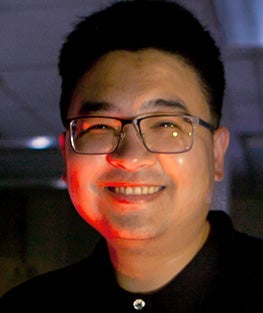 Assistant Professor Mingxi Zhou received a NSF CAREER grant. As an ocean robotics researcher, Zhou develops robotics technology for iceberg studies and has focused his work on the Arctic. Zhou’s five-year, $600,000 grant will bolster his work on increasing the capacity of robots to operate underwater in more comprehensive and connected ways.
Assistant Professor Mingxi Zhou received a NSF CAREER grant. As an ocean robotics researcher, Zhou develops robotics technology for iceberg studies and has focused his work on the Arctic. Zhou’s five-year, $600,000 grant will bolster his work on increasing the capacity of robots to operate underwater in more comprehensive and connected ways.
